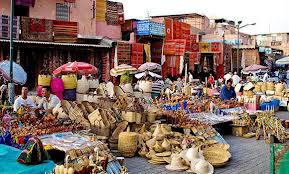* First part of pledged $2.5 bln expected in Q1 -aide
 * Investment in ports discussed with Qatar’s emir
* Investment in ports discussed with Qatar’s emir
* Moroccan king touring Gulf; due in UAE, Kuwait this week
By Regan Doherty
DOHA, Oct 22 (Reuters) – Morocco expects to receive early next year the first part of $2.5 billion in aid it was promised by wealthy Gulf Arab states, an advisor to King Mohammed said on Monday.
Cementing ties between Arab monarchies at a time of political turmoil, Saudi Arabia, Qatar, UAE and Kuwait last year agreed to disburse that sum to Morocco and the same amount to Jordan.
Accompanying the king on a tour of the Gulf region, Yassir Zenagui said in an interview with Reuters that the trip had not so far resulted in new pledges of aid and that none were expected.
“The aim of the tour is to present projects with concrete budgets and feasibility. We’re coming to work on what was already agreed, to execute what has already been decided by the GCC (Gulf Cooperation Council),” Zenagui said.
None of the $2.5 billion promised had yet been transferred, but that should change soon.
“We don’t expect it to be this year, Q1 of next year looks more reasonable,” Zenagui said.
Foreign aid is important to Morocco, whose $90-billion economy is heavily exposed to the debt-scarred euro zone through trade, tourism revenues and migrant remittances.
The country’s leadership is also anxious to avoid a drop in living standards, having largely been spared the political unrest that has toppled regimes in other parts of North Africa and the Middle East.
In August, the International Monetary Fund approved a $6.2 billion precautionary line of credit for the North African country, to be treated as “insurance” in case economic conditions deteriorated further.
INVESTMENT IN TOURISM
King Mohammed visited Saudi Arabia and Jordan before travelling to Qatar. He will visit the UAE on Tuesday and Kuwait on Wednesday, a spokesman said.
Infrastructure, health care, education, housing and agricultural investments are on the trip’s agenda, Zenagui said.
On Sunday the king and Qatar’s Emir discussed industrial ports in the Moroccan cities of Nador and Safi that could be used to export oil and gas, he said.
Last year Qatari fund Qatar Holding, the Kuwait Investment Authority’s Al Ajial Investments and Abu Dhabi’s sovereign wealth fund Aabar agreed to inject 20.8 billion dirhams ($2.5 billion) into a newly created vehicle called Wessal Capital that would focus on tourism development in Morocco.
Zenagui said he expected Saudi Arabia to shortly join the vehicle, which would run separately from the aid programme of the same value.
“We will have a structure with access to liquidity at reasonable rates in international markets. The aim is to create something open to any financial structuring, including a public offering.”
Morocco hopes Gulf institutional investors will buy into its planned sale of a $1 billion-plus sovereign bond, which has been delayed to the end of November from October.
Zenagui did not say whether the issue had been discussed during the king’s tour.
King Mohammed has kept his distance from Gulf Arab monarchies since his coronation in 1999, making far fewer official visits to the region than his late father King Hassan.
Some of the Gulf’s most influential rulers, including Saudi King Abdullah, regularly visit Morocco but mostly for medical or other private reasons. However, concern over the spread of Arab Spring revolts has brought Arab monarchies closer to each other. (Editing by Andrew Torchia; Editing by John Stonestreet)
.






